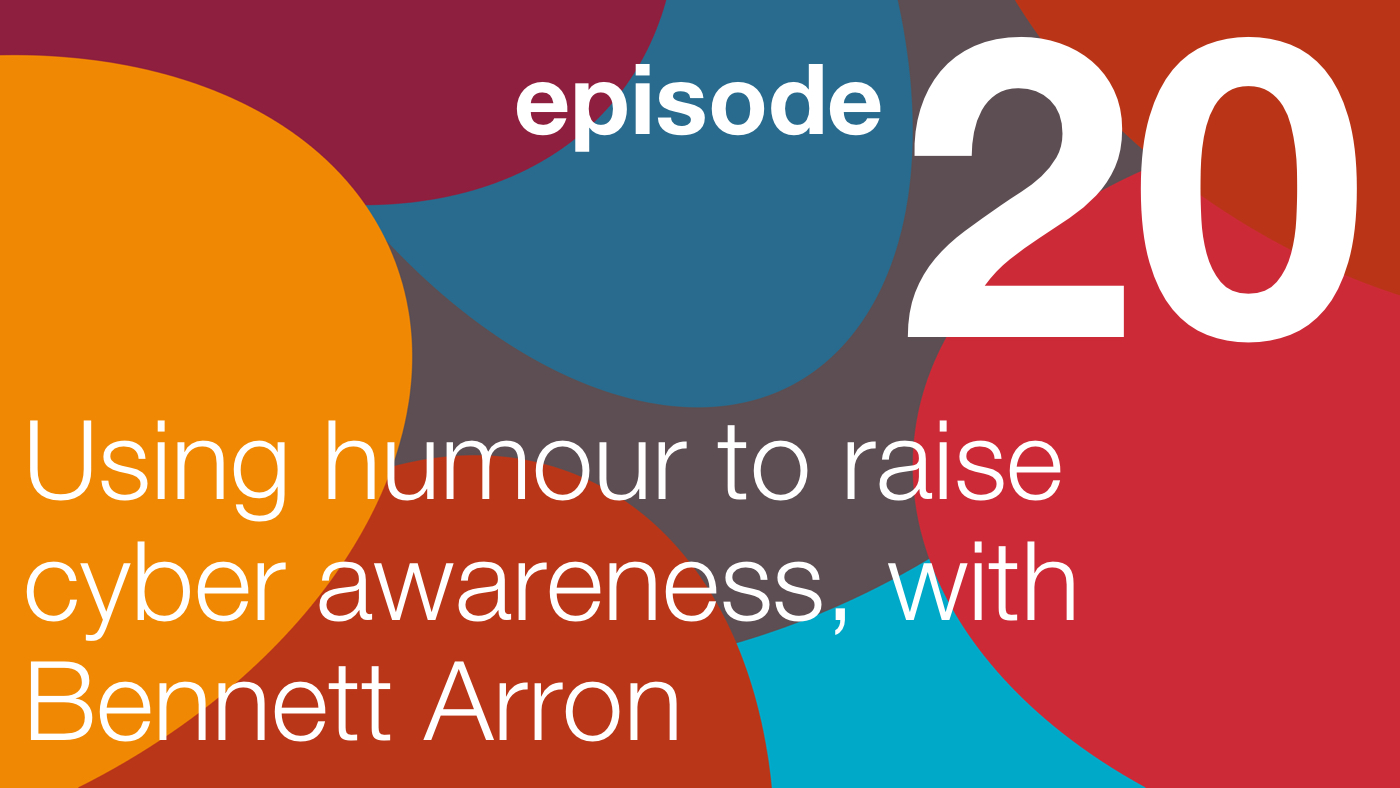
How a Victim of Identity Theft Uses Humour to Generate Cyber Awareness, with Bennett Arron
Welcome to Episode 20 of the Re-Thinking the Human Factor Podcast. Joining us on the show today is Bennett Arron, Bennett was one of the first major victims of Identity Theft in the UK.
According to the Police and credit reference agencies, he owed thousands of pounds to phone companies, banks and department stores.
The only thing was, it wasn’t him.
This theft resulted in Bennett becoming penniless and homeless.
Using humour to raise cyber awareness, with Bennett Arron
A comedy about identity theft
Years later, Bennett wrote a comedy show about his experience. The show was critically acclaimed at the Edinburgh Festival and led to Bennett being asked to direct and present the documentary ‘How To Steal An Identity’ for Channel 4.
How to steal an identity
In the documentary, Bennett proved, through a series of stunts, how easy the crime of ID theft is to carry out by first stealing the identities of the general public and then, rather foolishly, stealing the identity of the Home Secretary.
The documentary was ‘Pick of The Week’ in The Guardian and The Telegraph and was called ‘Fascinating and Disturbing’ by the TV Times. Bennett was shortlisted for a BAFTA.
As a result of Bennett’s programme, the UK Driving Licence Application Form had to be changed…
The programme can be viewed below (and you don’t even have to put in your bank details to watch!).
Bennett now tours the world, telling his disturbingly true yet funny account of what it’s like to have your identity stolen and revealing the devastating consequences of making a documentary ‘in the public interest’.
He was the Guest Speaker at the International Fraud Convention in Italy, the International Congress on Anti-Fraud and Anti-Corruption in Poland (twice), the Security Forum in South Africa and the opening keynote speaker at AUScert, Brisbane in front of 2000 delegates.
In addition to this, Bennett also speaks to Management and Customer Service Staff on the subject of Data Protection and GDPR showing how the repercussions from clerical, computerised or face-to-face errors can be devastating.
“People are shocked at what they fall for when they think they’re actually defending themselves…”
JOIN BENNETT ARRON AND BRUCE HALLAS AS THEY DISCUSS THE FOLLOWING:
- Trying to stir emotion in an audience is one thing, but being emotional yourself helps that. However you’re going to communicate to your audience, it’s going to be much more powerful if the person creating the content has emotional investment in the topic.
- Whether or not humour is as powerful an ingredient in effective communications as it is thought to be.
- The importance of having good timing when using humour in communications.
- Are there underlying processes one can learn to become funny or get better at being funny?
- Finding your voice.
- Knowing the right time for the right voice.
- The importance of tone of voice as well as tone of subject matter in effective communication.
- Humour as a softer means of communicating awareness initiatives or policy so that people’s responses and engagement with the information is more open.
- How laughter effects humans physiological and psychologically.
- That humour works across cultures as long as references are dropped that would be culturally irrelevant to the audience at hand.
MORE ABOUT BENNETT ARRON:
Please subscribe to the podcast in iTunes, and if you enjoyed this interview, please share with your friends and colleagues and leave a 5 star rating and review.
Thanks for listening and sharing
Bruce & The Re-thinking the Human Factor Podcast Team
